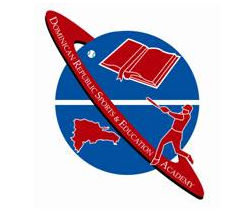Visits: 0
DRSEA INFORMER
Volume IV, Issue 6: A Publication For Your Reading Enjoyment
The accelerated signings of Dominican baseball prospects, coupled with a record signing bonus by the Texas Rangers, appears to be an indication that Major League Baseball teams have increasing faith that efforts to curb age and identity fraud in the Dominican Republic are working.
The $5 million signing bonus given 16-year-old Nomar Mazara eclipses the $4.25 million awarded Michael Ynoa by the Oakland A’s in 2008, and was one of several $1 million-plus bonuses awarded young Dominican players after the July 2 date when 16-year-olds are eligible to be signed. The Rangers also signed Ronald Guzman, a 16-year-old outfielder, for $3.45 million. Among other notable Dominican signings reported:
- Elier Hernandez, OF – Kansas City Royals, $3.05 million
- Helsin Martinez, OF – Seattle Mariners, $2 million
- Adalberto Mondesi, SS – Kansas City Royals, $2 million.
- Dawel Lugo, SS – Toronto Blue Jays, $1.3 million
- Enrique Acosta, SS – Chicago Cubs, $1.1 million
- Dorssys Paulino, SS – Cleveland Indians, $1.1 million
- Raymel Flores, SS – Boston Red Sox, $900,000
- Manuel Marcos, OF – Boston Red Sox, $800,000
- Miguel Andujar, 3B – New York Yankees, $750,000
- Adelin Santa, 3B – Detroit Tigers, $750,000
- Luis Reynoso, SS – Houston Astros, $700,000
- Miguel Gonzalez, RHP – Minnesota Twins, $650,000
- Dioscar Romero, RHP – Boston Red Sox, $600,000
- Francisco Miguel, OF – Cleveland Indians, $200,000
This does not include agreements reached with players from other countries including Venezuela, Columbia and Panama. International signing bonuses topped $100 million last year and speculation is that when signings are completed this year, they will exceed that total. All signings are subject to the approval of MLB’s Commissioner’s Office.
Rangers Ronald Guzman was among top Dominican signees
The signings appear to reflect calmer waters in the Dominican baseball ocean after more than a year of tempests that tossed the sport in the country, threatening to undermine its integrity. Widespread allegations of age and identity fraud made many teams cautious in their pursuit of Dominican prospects.
In the wake of the allegations, as well as reports of steroid use by prospects and money skimming charges, baseball launched a major reform movement, beefing up investigations into the fraud, and instituting several measures to curb it, including the use of fingerprints to positively identify prospects, a process advocated in the INFORMER two years ago.
Jorge Perez-Diaz
Jorge Perez-Diaz, a lawyer from Puerto Rico who now oversees the baseball reform movement in Latin America, told the Wall Street Journal that MLB teams have been subject to “an unreasonable amount of fraud and use of drugs” among Dominican prospects. “We needed to do this to make the industry sustainable here for the long-term,” he said.
My mind still boggles over handing a 16-year-old Dominican kid so much money without putting in place better programs to help them handle their new-found wealth. Such large sums of money are life changing, but in the hands of the uneducated, as so many prospects are, it is tantamount to putting a loaded gun in their hands. Without supervision the results can be tragic.
Baseball will tell you that financial planning is provided these youngsters, but my belief is that it is insufficient in teaching them how to wisely protect their money, make sound investments for their future and that of their families, and prepare for a life without baseball, which is the fate of 98 percent. The average signing bonus is around $100,000, and once an “agent” has taken his cut – usually around one-third – the “take home” is reduced. I know of far too many Dominican prospects who have been handed more money than they can imagine, and within a short time are penniless, having spent the money as if it flowed from an eternal fountain, providing for family that has known only poverty and has been handed a taste of la buena vida.
The same happens to American athletes as well; teenagers suddenly transformed into millionaires, but most are better prepared to deal with the trappings of wealth. When the DRSEA recently designed an educational program for a development academy here, we first conducted extensive diagnostic tests designed to determine the ability to do such simple things as interpret safety signals, use maps to identify home towns, locate information in television and movie listings, and identify driving regulations. The majority had very limited ability to read and comprehend numbers, letters and simple words and phrases related to those needs, let alone manage money.
As baseball continues its reform movement, particularly with regards to education for prospects, I think it is critically important that teams provide more intensive financial advice, including budgeting, investments and long-range planning, helping them prepare for the day when a career in baseball is no longer an option – whether they are among the lucky few who have been handed millions or the majority whose riches, at best, are a few thousand dollars. Wealth is subjective; managing it is not.
And while there is significant proof that Major League Baseball has made strides in addressing age and identity fraud, the problem has not been resolved, as evidenced by the recent suspension of Cincinnati Reds prospect Jonathan Correa for a year for lying about his age.
MLB determined the pitcher supplied an incorrect birth date when he signed in 2008. Adding to his misdeeds is that after signing, Correa was suspended for 50 games for steroid use.





You must be logged in to post a comment Login